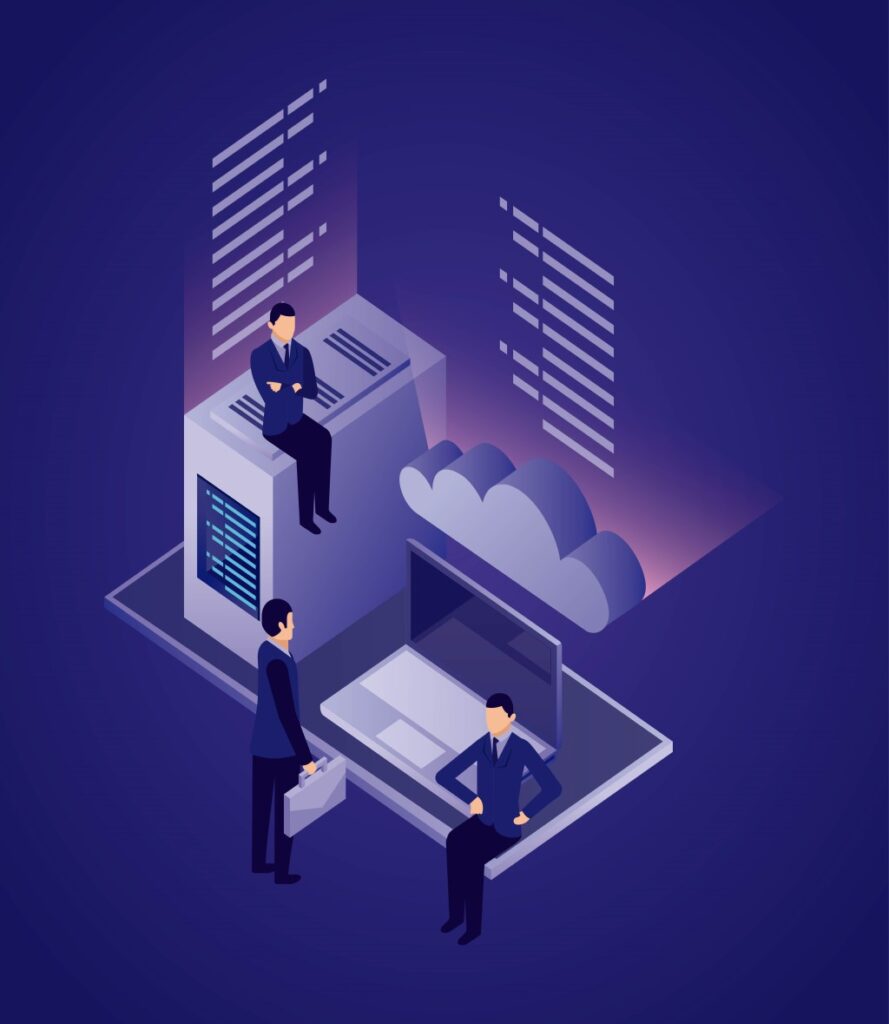
Companies of all sizes must stay apprised and effective in the ever-evolving realm of technology. Cloud computing is one of the most revolutionary ideas guiding modernization efforts. This thorough guide explores how cloud computing can inspire technology modernization, emphasizing important topics including cloud migration from legacy systems, services for modernizing old systems, and the function of cloud computing solutions in this innovative process.
Understanding Technology Modernization
A continuous and ongoing process of improving and upgrading information technology resources to fulfill contemporary business needs and take advantage of future technological innovations is what technology modernization denotes. This refers to the development and deployment of powerful analytics tools that will help the organization realize its goals of harnessing cloud-native designs and upgrading old systems.
Legacy to Cloud Migration: The Imperative Shift
Even though they were revolutionary at the time, legacy systems can impede creativity and adaptability over time. The process of moving from old or on-premises infrastructure to cloud-based options is known as a legacy to cloud migration. This modification has several strong advantages:
1. Agility and Flexibility:
Cloud platforms offer resources that are easily expandable, enabling companies to modify their offerings, storage capacity, and processing power in response to variations in demand.
2. Cost-Effectiveness:
‘Pay-as-you-go’ cloud services remove the need for upfront hardware capital investments and save operating expenses by making effective use of available resources.
3. Enhanced Security:
To guarantee a safe environment for sensitive data, top cloud providers include strong security features including data encryption, access limits, and compliance certifications.
4. Better Accessibility and Collaboration:
Cloud-based apps facilitate easy communication across teams that are spread out and offer anytime, anywhere access to tools and data, which boosts efficiency and flexibility.
Leveraging Legacy Modernization Solutions
By bringing outdated technologies and apps back to life, legacy modernization services are essential to the process of technology modernization. These services cover a range of approaches:
1. Application Re-platforming:
To increase speed, scalability, and maintainability, old programs are moved to more recent platforms like cloud environments or containerized architectures.
2. Legacy System Integration:
This involves integrating cloud-based services and apps with legacy systems to facilitate data exchange, automate workflows, and promote interoperability throughout the enterprise.
3. Old Application Refactoring:
Reorganizing and streamlining old codebases to improve performance, bring them into line with contemporary development methodologies, and make it easier to integrate and upgrade them in the future.
4. Data Modernization and Migration:
Moving historical data to data lakes or cloud databases to allow immediate insights, machine learning, and sophisticated analytics for informed choices.
Role of Cloud Computing
Among the cloud computing services are PaaS (Platform as a Service), SaaS (Software as a Service), IaaS (Infrastructure as a Service), and other products offered by the cloud service providers. These offerings provide companies the capacity to:
1. Boost Innovation:
By utilizing cloud platforms, businesses can test out new technologies, quickly implement and expand apps, and promote ongoing innovation.
2. Strengthen Resilience and Agility:
Cloud services provide automated deployment pipelines, disaster recovery plans, and agile development methodologies, which guarantee resilience and business continuity.
3. Optimize Resource Usage:
By providing auto-scaling features, cost optimization tools, and flexible resource allocation, cloud platforms enable businesses to save expenses and increase resource usage.
4. Promote Digital Transformation:
Cloud-based solutions promote digital transformation programs by facilitating customer-focused experiences, agile, collaborative processes, and making decisions based on data.
Key Considerations for Successful Modernization
Although using cloud computing for technology modernization has many benefits, businesses must take into account a number of crucial elements for effective implementation:
1. Alignment with Business Objectives:
Modernization efforts have to be compatible with strategic business goals, with an emphasis on fields that foster competitive advantage, worth, and innovation.
2. Change Management and Training:
To make sure the cloud technologies and processes are implemented all throughout the organization, effective change management courses, as well as pertinent training programs, are definitely required.
3. Security and Compliance:
Security measures such as the encryption of sensitive data, data privacy standards, and compliance frameworks must be observed to protect data and comply with regulatory requirements when implementing cloud environments.
4. Performance Tracking and Optimization:
To fully benefit from cloud resources and adapt to dynamic business needs, it is essential to always take performance monitoring, optimization techniques, and performance evaluations into consideration.
Conclusion
With cloud computing, companies can now benefit from the agility, scalability, and innovation capabilities necessary to prosper in today’s digital environment, making it an impulse for technology modernization. Through the adoption of legacy to cloud migration, use of legacy modernization services, and integration of cloud computing services, enterprises can bring about radical transformation, quicken expansion, and maintain a competitive edge in a quickly changing marketplace.

Author Bio:
Hetal Mehta is the CEO of Ansi ByteCode LLP, a visionary offshore software development company based in Ahmedabad, India. With over 20 years of experience in the IT industry and 25 years of overall work experience, he is dedicated to leading Ansi ByteCode LLP to the pinnacle of success. What truly distinguishes him is his commitment to his team, strategic business acumen, and technical know-how. He is a passionate techpreneur, an avid tech reader, and a tech innovator.